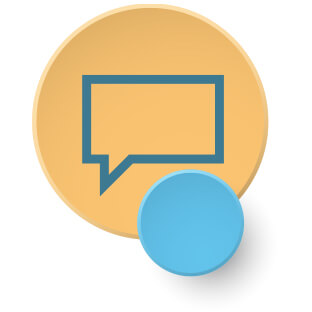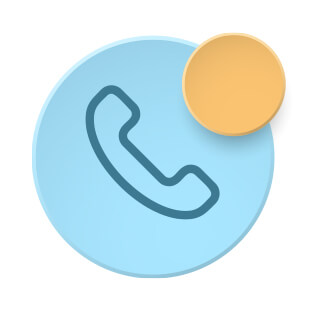
CUSTOMER COMMUNICATION STRATEGY
A customer communication experience is a critical factor in shaping the reputation of companies and their brands. Therefore, building customer communication strategies to manage customer expectations has become critical to business success. The more successful you are at managing customer communications and their experience, the more loyal customers you can attract, retain, and grow.
While your wholesale parts customers may prefer to communicate with you in different ways, it’s important for the overall success of your business that your parts department has a custom-tailored communications strategy for each account. Knowing what communication method they prefer and how they like to receive information will help you build rapport, which leads to repeat business.
Capturing Communication Preferences
The first step is to find a method to receive, record, and maintain customer communication preferences for each customer. The phone remains the most direct route, while other channels are secondary options when necessary. Wholesale customers can be contacted through several channels, but each has advantages and business etiquette nuances. Let’s look at a few best-practice communication methods.

Text Messaging
Text has rapidly become a preferred business communication channel. With a 98% open rate, texts allow us to send tailored messages in minutes. Busy shop managers often prefer text messaging as it allows them to receive instant notifications and send messages anytime, anywhere.
Your business-related messages should follow protocols that may not apply to your personal texts. Here are some rules to follow:
- Obtain your customer’s consent to receive texts (respect their preferences).
- Allow customers to opt out of texts.
- Use a dedicated work phone.
- Send texts during regular business hours.
- Keep your text messages short, clear, and concise.
- Offer to switch to a phone call, if a quick texting conversation has the potential to become a longer and more detailed discussion.
- Standardize frequent messages, such as order-ready alerts, to streamline productivity.
- Include your name and shop name.
- Check your spelling, grammar, and word choice, and minimize emoji use.
- Mind your text message frequency—don’t double-text.
- Respond to inbound text messages quickly.

Texting and email both offer benefits in certain business situations. While texting may be considered more open, informal, and immediate, email shows professional courtesy and establishes a respectful attitude toward new customers. It also allows you to deliver detailed information and documents.
Follow these best practices when sending business emails:
- Use standard formatting.
- Include a clear subject line.
- Email from your business/shop email address.
- Avoid using all caps.
- Keep your tone professional.
- Check spelling, grammar, and word choice.
- Double-check attachments.
- Avoid using emojis.
- Reply within 24 hours.
- Use a standard email signature line, including your name, job title, shop website, and phone number.

Telephone
Picking up the phone to place an order, check status, and make inquiries may seem old school, but many parts buyers prefer personal, verbal communication. The advantage of verbal communication is that tone and intent are clear on both sides of the call. It’s the best channel for long conversations and goes a long way in forging relationships.
Phone etiquette is essential in gaining and retaining customers—and it can make or break your business. Although tried and true, you still need to be mindful of the rules of thumb and share them with your parts counter personnel:
- Pick up the phone within five rings.
- Use a scripted greeting.
- Speak with a pleasant tone and impeccable manners; please and thank you go a long way.
- Always ask with whom you are speaking.
- Listen first and never interrupt.
- Minimize hold times.
- Wrap up the call politely, acknowledging next steps.
Minimizing hold times is key. First, ask the customer if you may place them on a brief hold. If the hold takes longer than expected, check back with your customer to assure them that you haven’t forgotten them.
Your parts personnel’s phone skills are essential to running an outstanding business that reflects the Lexus way—treating each customer as you would a guest in your home. To keep your phone skills sharp, check out the Lexus College Phone Skills course on lexuslearn.com.
Be Gracious, Be Professional, Be Flexible!
While some shop managers may prefer emails, others may prefer to be informed through text message (SMS) or a mobile app for more urgent or time-sensitive messages. What’s important is to understand your customer prefers different methods for different types of communication. A robust communication preferences program will help you maintain this information. Successful Lexus Wholesale Parts dealers always share the same advice—our business is all about relationships and service. Treating your prospects with respect and hospitality instills the spirit of omonetashi, the Lexus brand differentiator. Honoring your customers’ preferences is vital in modeling the Lexus way.



